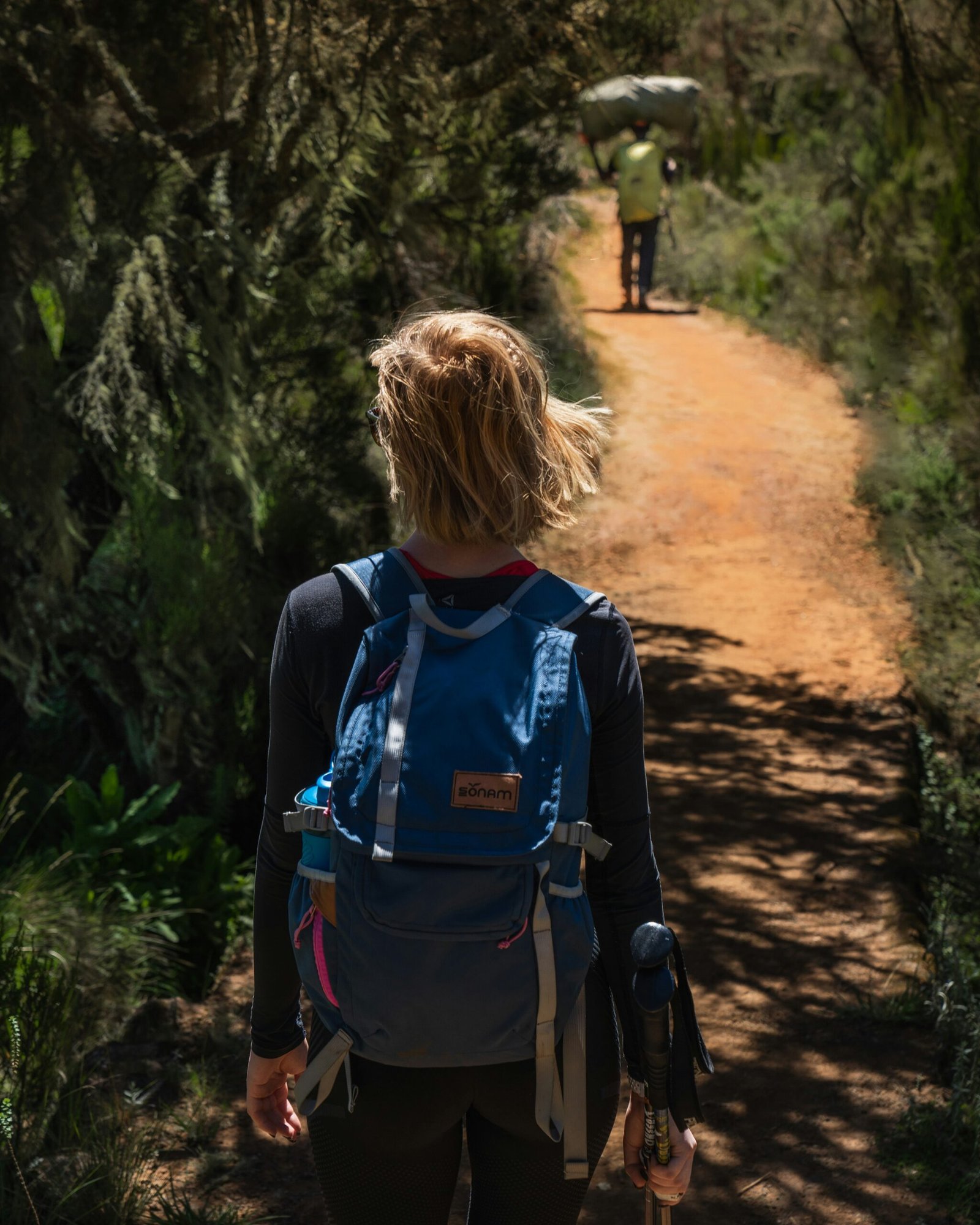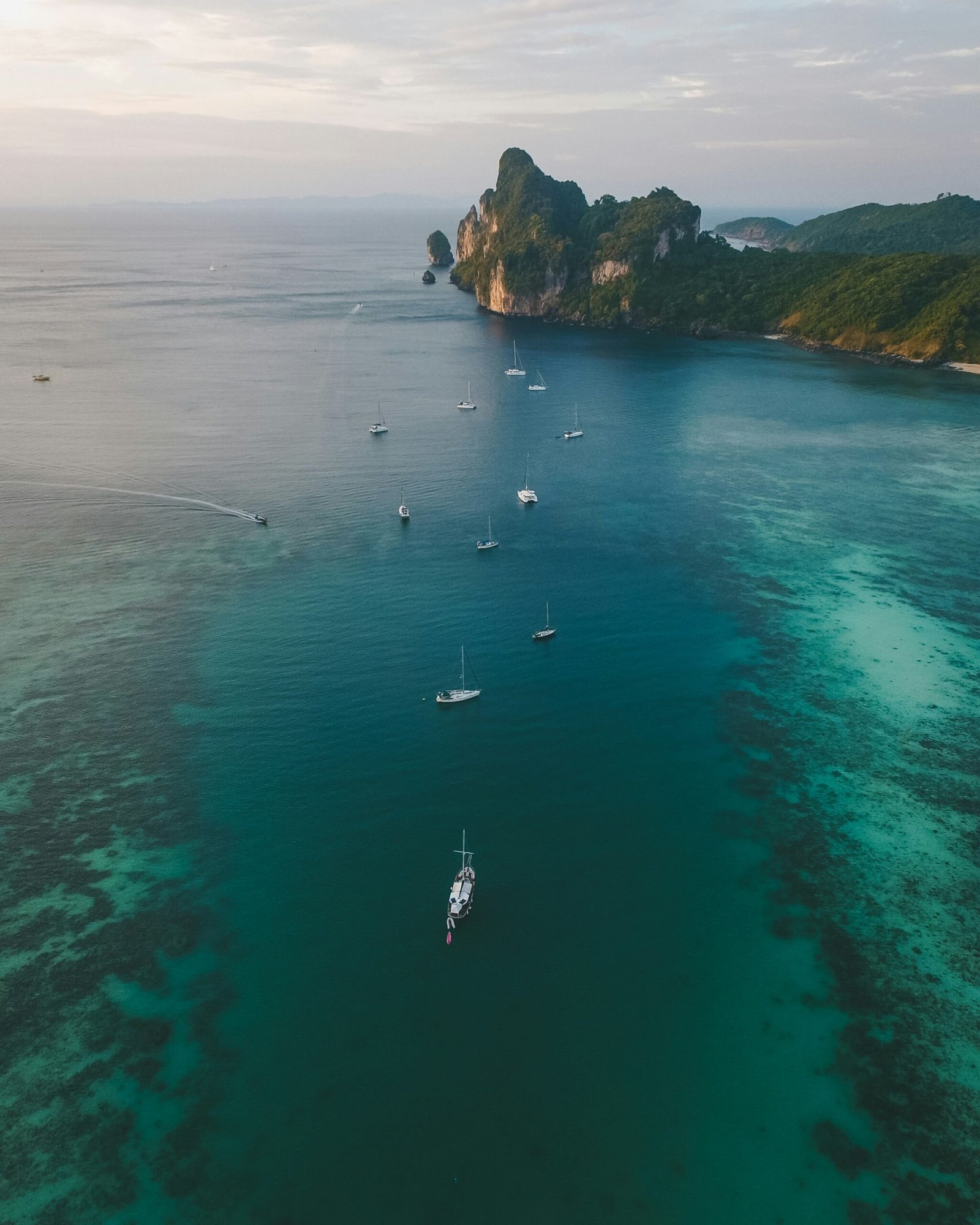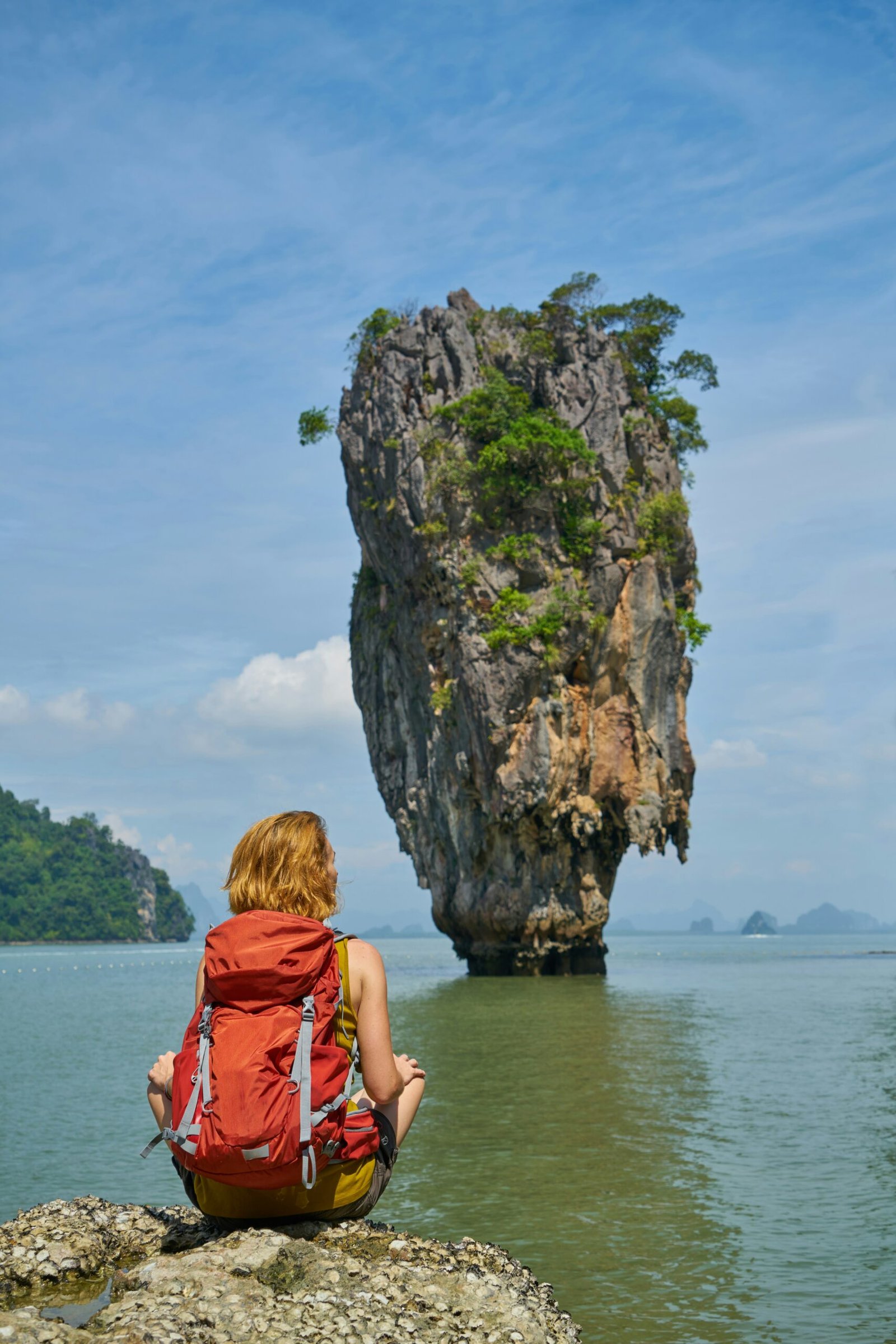Introduction to Solo Travel
In recent years, solo travel has surged in popularity, attracting individuals from diverse backgrounds who seek unique experiences away from their daily routines. This growing trend reflects a shift in how many perceive travel, moving beyond traditional group journeys to embracing the enriching prospects of independence and self-exploration. Traveling alone offers the chance for personal growth, as individuals often confront challenges that promote self-discovery and resilience.
The motivations for embarking on a solo journey can vary significantly from one person to another. Some travelers are driven by the desire for solitude, seeking moments of reflection in picturesque settings. Others may wish to escape the demands of everyday life, using their journey as a means to recharge and reconnect with themselves. Additionally, solo travel allows individuals to craft their itineraries without compromise, providing the freedom to pursue personal interests—whether that be tasting local cuisines, exploring historical sites, or immersing oneself in nature.
Importantly, the advent of technology has also made solo travel more accessible and enjoyable. With various travel apps available, travelers can easily navigate unfamiliar destinations, find accommodations that suit their needs, and connect with other like-minded adventurers. Social media platforms often serve as a source of inspiration, allowing individuals to share their experiences and foster a sense of community among fellow solo travelers. This digital connectivity can help alleviate some anxieties related to traveling alone, as connections with others and informative resources are just a click away.
Embracing solo travel opens up a world of possibilities. It encourages individuals to step outside their comfort zones and embark on adventures uniquely tailored to their preferences. By acknowledging the benefits of traveling alone, we can dispel preconceptions and inspire more people to consider this enriching form of exploration.
Safety Concerns While Traveling Alone
Traveling alone offers unique opportunities for personal growth and exploration; however, safety concerns are often at the forefront of solo travelers’ minds. Being aware of one’s surroundings is crucial in fostering a sense of security when navigating unfamiliar environments. Simple actions, such as maintaining eye contact with people and avoiding distractions from mobile devices, can enhance a solo traveler’s ability to detect potential threats.
Another essential consideration is the choice of accommodation. Prioritizing safety while selecting a place to stay is paramount. Researching hotels or hostels with good reviews can reveal experiences from previous guests regarding safety. Additionally, opting for accommodations located in well-lit, populated areas can significantly reduce vulnerability. Utilizing reputable booking platforms that provide details such as safety features and proximity to emergency services is advisable.
Incorporating technology in safety strategies is increasingly relevant for lonely travelers. Smartphones provide an array of applications that allow for enhanced personal safety. For instance, sharing one’s real-time location with trusted friends or family can create a safety net. Communication apps can facilitate instant check-ins, ensuring a support system is always accessible. Furthermore, leveraging maps and navigation apps can help avoid potentially dangerous areas, allowing for a more secure exploration experience.
Statistical insights on solo travel safety may help alleviate lingering apprehensions. Studies demonstrate that solo travelers often report their experiences as safe, with a high percentage of them encountering no serious issues during trips. In fact, many travelers discover that their independence tends to favor positive interactions and connections with locals, enhancing their overall experience. While safety concerns are valid, they are often manageable through careful planning and informed choices.
Dealing with Loneliness on the Road
Traveling alone can be an enriching experience, allowing for personal growth and self-discovery; however, it can also bring about feelings of loneliness. Many solo travelers encounter moments of solitude, especially during lengthy stretches of travel or when faced with unfamiliar environments. It is essential to acknowledge these emotional challenges and develop strategies to manage feelings of isolation while exploring new destinations.
One effective method to counter loneliness is actively seeking social interactions. Joining group tours or excursions is a great way to connect with fellow travelers and locals. Many hostels and hotels also offer organized social events, creating opportunities to meet others in a relaxed setting. Consider utilizing online platforms and apps designed for travelers looking to connect with one another; they can help identify potential travel buddies, attend local events, or share experiences along the way.
Engaging with local cultures can significantly enhance the travel experience and mitigate emotions typically associated with loneliness. Participate in cultural activities, such as cooking classes, language exchanges, or local workshops, to foster a sense of belonging within the community. These experiences not only provide a sense of purpose but also lead to new friendships, enriching both the journey and the connection to the destination.
Maintaining a positive mindset is also crucial when traveling alone. This can be accomplished by embracing the freedom that solo travel offers and focusing on personal goals, such as exploring new places or trying new activities. Journaling can be an effective way to process thoughts and emotions while on the road. Reflecting on daily experiences can help shift focus away from loneliness and inspire a greater appreciation for the adventure that solo travel brings.
By taking these proactive steps, solo travelers can effectively address feelings of loneliness and enjoy a fulfilling journey filled with meaningful connections and transformative experiences.
Managing Financial Concerns When Traveling Alone
Traveling alone can be an enriching experience; however, many individuals often express concerns regarding the financial implications. Budgeting is a cornerstone of successful solo travel, ensuring that you can enjoy your adventure while avoiding monetary stress. Careful planning can help manage costs effectively, enabling a rewarding journey without overspending.
To start, establishing a clear budget is crucial. Begin by outlining all potential expenses, including transportation, lodging, meals, and entertainment. It may be helpful to categorize these expenses to make tracking easier. Experts recommend allocating a specific percentage of your budget to each category to maintain clarity. For instance, investing around 30% in accommodation while prioritizing experiences that offer value for money can enhance your travel quality.
Finding deals is another essential strategy for solo travelers. Many airlines and hotels often provide discounts specifically for those traveling alone. Websites and apps dedicated to travel can prove invaluable, offering price comparisons and special promotions that can significantly reduce costs. Furthermore, subscribing to newsletters from travel platforms and following them on social media can alert you to flash sales and significant discounts on services.
Another effective way to save money is by exploring affordable activities. Many cities offer free walking tours, local markets, and public parks that provide a glimpse into the culture without straining your finances. Engaging with locals can also lead to discovering hidden gems and lesser-known attractions that are often overlooked by tourists, further enriching your experience while sticking to budget constraints.
By being proactive and informed about financial matters, solo travelers can alleviate concerns related to budgeting, costs, and overall travel expenses. Embracing these strategies will help ensure that your solo journey is not only memorable but also feasible within your financial means.
Choosing Destinations for Solo Travel
When selecting a destination for solo travel, several essential factors should be considered to ensure a rewarding and secure experience. Safety is arguably the most critical element; travelers should research crime rates and any travel advisories issued by their government for the chosen location. Destinations known for their low crime rates, such as Japan or Norway, can provide peace of mind for those embarking on a solo journey.
Another vital aspect is ease of communication. Opting for a location where English is widely spoken or where the local population is generally accommodating to tourists can greatly enhance the travel experience. In countries like Ireland and the Netherlands, solo travelers often find language barriers less daunting, making it easier to connect with locals and other travelers alike.
Accessibility is also an important thing to keep in mind. Consider destinations with well-connected public transportation systems or areas that are walkable; these factors significantly impact the overall enjoyment of independent travel. Cities like Barcelona and Melbourne not only offer reliable transport options but also encourage exploration on foot, fostering opportunities for spontaneous encounters and cultural experiences.
Lastly, the availability of social opportunities cannot be overlooked. Traveling alone does not have to mean being lonely; many destinations offer vibrant communities and solo-friendly activities. Hostels, group tours, and social events are great ways to meet fellow travelers. Cities such as Bangkok and Lisbon are famous for their social atmospheres, hosting numerous gatherings geared towards solo travelers.
In conclusion, choosing the right destination for solo travel involves careful consideration of safety, communication, accessibility, and social opportunities. By paying attention to these factors, travelers can significantly enhance their experiences, leading to memorable adventures and personal growth.
Coping with Cultural Differences
Traveling alone presents a unique opportunity to explore and engage with different cultures, yet it also comes with potential challenges that can be daunting for solo travelers. One of the primary concerns is navigating the cultural differences that may arise in various destinations. Differences in customs, social norms, and communication styles can create misunderstandings if not approached with sensitivity and respect.
To effectively cope with these challenges, a proactive mindset is essential. First and foremost, research is critical. Prior to embarking on your journey, take the time to learn about the culture of the country you will be visiting. Understanding local customs, traditions, and taboos can help you navigate everyday interactions more smoothly. Furthermore, familiarize yourself with basic phrases in the local language. Even rudimentary communication skills can foster goodwill and help bridge the cultural divide.
When encountering cultural differences, exhibit cultural sensitivity by maintaining an open and non-judgmental attitude. Recognize that your way of doing things may not align with the local approach; being adaptable is key. Engage with locals whenever possible, as this can provide valuable insights and foster authentic connections. Participating in cultural activities or traditions can also enhance your experience, allowing for deeper immersion while demonstrating respect for the community.
While navigating cultural differences, always approach interactions with kindness and curiosity. Be mindful of body language and respect personal space, as these can vary greatly across cultures. When in doubt, observe how locals behave in similar situations and follow their lead. By embracing these strategies, solo travelers can enrich their journeys, transform potential challenges into rewarding experiences, and cultivate a deeper understanding of the world around them.
Tips for Planning Your Solo Adventure
Traveling alone can be a transformative experience, but adequate planning is crucial for a successful solo journey. The first step in preparing for your trip is to create a well-structured itinerary. This document should outline key aspects of your journey, such as destinations, accommodation options, travel methods, and activities. An itinerary acts as a framework, guiding your adventures and ensuring you make the most of your limited time while fostering the spontaneity that enriches solo travel.
However, it is vital to maintain a level of flexibility in your plans. Traveling alone may present unexpected opportunities to explore a new destination or meet fellow travelers. By allowing for unplanned activities, you can enhance your experience, uncovering hidden gems that structured itineraries sometimes overlook. Embrace moments of spontaneity; they can lead to unforgettable encounters and serendipitous adventures.
Research and preparation are essential components of solo travel. Familiarize yourself with the culture, customs, and language of your chosen destination. This background knowledge will enable you to navigate social situations more confidently and help alleviate any feelings of anxiety that might arise due to cultural differences. Moreover, understanding local safety measures, transportation systems, and available accommodations will empower you to make informed decisions during your journey.
Utilizing various resources for solo travelers can significantly enhance your travel experience. Online forums, social media groups, and travel blogs offer valuable insights, tips, and encouragement from those who have navigated similar journeys. Additionally, consider seeking advice from experienced travelers through platforms like Couchsurfing or Meetup, which can provide opportunities to connect with locals and fellow adventurers. These resources not only offer practical tips but also foster a sense of community for those choosing to embark on solo adventures.
Health and Well-being Considerations
Traveling alone can be an enriching experience, yet it brings unique health and wellness challenges that solo travelers must navigate. Maintaining physical health while on the road is essential, as travelers might find themselves in unfamiliar environments with varying access to services. Engaging in regular exercise, whether through walking, cycling, or exploring local parks, contributes to overall well-being. Incorporating a balanced diet is equally important; travelers should seek nutritious meals and stay hydrated to ensure energy levels remain high for adventure.
Emergencies can arise at any time, and being prepared is imperative. Solo travelers should carry a basic first-aid kit and be familiar with local healthcare options wherever they go. Researching nearby hospitals or clinics before embarking on a journey can alleviate stress during emergencies. In addition, keeping essential medical information, including allergies and medications, readily available will expedite assistance during critical situations. For international travel, it is advisable to have travel insurance that covers health issues, ensuring support when needed.
Mental health is another significant concern for those who choose to travel alone. Experiencing solitude can sometimes lead to feelings of loneliness or anxiety. Solo travelers are encouraged to stay connected with family and friends through regular communication. Engaging in local communities or other travelers can foster connections and create a support network. Additionally, mindfulness practices such as meditation or journaling can offer comfort during challenging moments. Recognizing the signs of mental fatigue and knowing when to seek help is foundational to sustaining one’s well-being. Accessing resources such as local support groups or mental health professionals can provide essential support if feelings of isolation or distress become overwhelming.
Thus, prioritizing health and wellness while traveling alone is vital and involves staying proactive in maintaining both physical and mental well-being. Managing these aspects creates a more enjoyable travel experience, allowing solo adventurers to fully immerse themselves in their journeys.
Conclusion: Embracing the Solo Travel Experience
In conclusion, traveling alone presents an array of opportunities that can significantly enrich one’s life. While some may be apprehensive about embarking on a solo journey due to common concerns such as safety and loneliness, it is essential to recognize the numerous benefits that solo travel offers. This unique experience fosters self-discovery, allows for personal growth, and enhances one’s problem-solving skills. Traveling alone empowers individuals to step out of their comfort zones, embrace spontaneity, and engage with new cultures in a more meaningful way.
Furthermore, as highlighted in our discussion, solo travel serves as a perfect opportunity to reflect on one’s preferences and desires, free from the pressures and constraints that often accompany group travel. The ability to create one’s own itinerary, choose destinations that resonate on a personal level, and prioritize individual interests leads to a fulfilling experience. These aspects not only cultivate independence but also boost confidence, proving that one can navigate the world solo.
It is also vital to mention that embracing solo travel can lead to unforeseen connections with fellow travelers and locals, creating cherished memories and friendships that can last a lifetime. The freedom to shape one’s journey can result in profound encounters and unique experiences that are often overlooked when traveling in groups. As potential solo travelers reflect on the insights provided, it is encouraged to approach the prospect of traveling alone with an open mind, ready to embrace the adventure and growth that await.
Overall, while concerns about traveling alone are valid, the advantages far outweigh the potential pitfalls. Solo travel is not merely an activity; it is a transformative experience that fosters a sense of adventure and personal empowerment. Thus, it is time to take the leap into this enriching aspect of travel and embrace the journey ahead.











